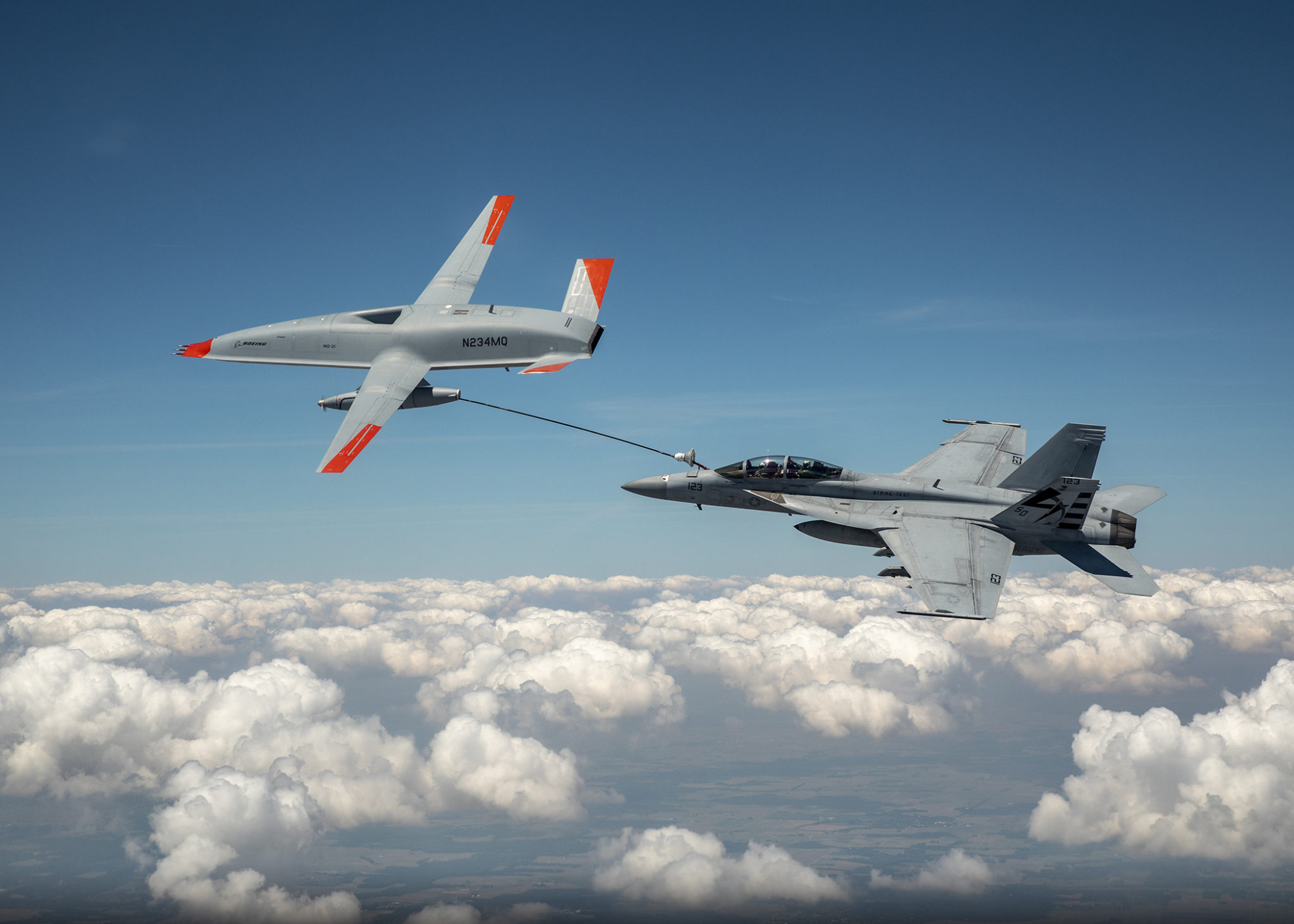The United States Navy and Boeing made aviation history on June 4 after successfully refueling an aircraft in mid-air with a drone, according to a press release from Boeing.
Fighter jet U.S. Navy F/A-18 Super Hornet and the unmanned Boeing-owned MQ-25 T1 test drone flew at “operationally relevant speeds and altitudes,” in their test, meaning the conditions were as close as possible to real combat. After completing the safety evaluation, F/A-18 flew as close as 20 feet to the test asset. The asset extended its hose and drogue from its aerial refueling store (ARS) and F/A-18 “plugged” with the drone, transferring jet fuel.
Boeing claims the test indicates the aircraft’s ability to perform its primary aerial refueling mission. Rear Adm. Brian Corey, head of the Program Executive Office for Unmanned Aviation and Strike Weapons, echoed this claim.
“This team of professionals was integral in the successful flight,” said Corey. “Over the next few years, we will work side-by-side with Boeing to deliver this capability that will greatly enhance the future carrier air wing.”
The test asset is a predecessor to seven other test aircraft Boeing is developing as part of an award contract from 2018. The aerospace company is a multinational entity that supports commercial and government customers in more than 150 countries by designing, manufacturing, and selling of airplanes, rotorcraft, rockets, satellites, telecommunications equipment, and missiles.
President and CEO of Boeing Defense, Space & Security Leanne Caret gave credit to the joint Boeing-Navy team behind the development of MQ-25, calling their work the “driving force behind the safe and secure integration of unmanned systems in the immediate future of defense operations.”
In-flight refueling, otherwise known as “tanking,” is currently performed by the F/A-18 Super Hornets. The plan is for MQ-25 to replace the F/A-18’s for the sake of extending the range of tanking operations and freeing up F/A-18’s for more combat missions.
The successful test run comes after a previous 25 test flights, testing of both aircraft and ARS aerodynamics, and as well as simulations of aerial refueling via digital models. It will continue to undergo testing before going to Norfolk, Virginia, for deck handling trials on a U.S. Navy carrier later in the year.


